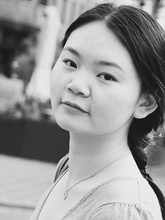
Center for New Music Season 51 Concert Series, Concert Events V - VIII
MidWest Composers Symposium
UI hosting composers from the
Universities of Iowa, Michigan, Indiana and CCM
The University of Iowa, School of Music Concert Hall
Concert III: Saturday, November 5, 2:00 pm
|| download program ||
Program
My Metal Bird Can Sing combines melody with audio glitches, and ambience with noise. Although the piece does not have any kind of strong programmatic elements, I chose the title based on the similarity of some of the sounds used near the end of the piece. I was fond of the way that the kind of lively digital chirping noises blended with some of my recordings of morning birds.
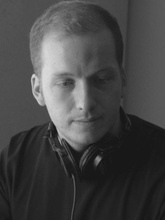
Ataktos Errimmena is a phrase found in Xenophon’s Memorabilia and roughly translates to “disorderly dropped”. In this piece each pianist performs six collections of fragments which are “disorderly dropped” in a series of metric taleas. In section A all three pianists are uncoordinated and play in fluctuating tempo. In section B there are three formations each one consisting of a pair of coordinated pianists and a pianist playing in fluctuating tempo. In part C all three pianists are fully coordinated.
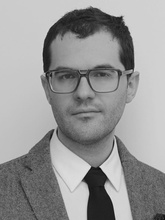
Alexandros Spyrou is a Greek composer and music theorist. His music has been performed in Greece, Italy, the United Kingdom and the United States by such ensembles as the London Sinfonietta, JACK Quartet, Ensemble MDI Milano, Musica Nova Ensemble and Ensemble DissonArt. Alexandros studied composition with Michael Finnissy, David Gompper, Evangelia Kikou, Josh Levine and Athanasios Zervas. He has been a scholar of the Fulbright Foundation, IKY Foundation, Stanley Foundation, City Council of Ioannina, University of Iowa, and Harry Triantafillu Foundation. He is a PhD candidate at the University of Iowa.

Gregory Bowen, viola
Doron Tsachor, violoncello
The inspiration for this piece came from a desire to incorporate concepts I learned in a Linear Systems course into a musical composition. Signals and Systems, for string quartet, is my attempt to accomplish this. Linear Systems is a field of study that influences things such as data processing and sampling theory, which makes many of the uses of computers possible. Signals and Systems explores the concepts taught in these courses.
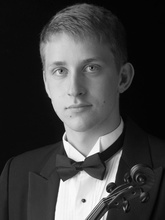
Luke Kottemann is a composer and violinist who is currently pursuing a BM in Music Composition and a BSE in Electrical Engineering at the University of Iowa. Luke’s music has been performed throughout the Midwest by ensembles such as CNM. He is currently studying composition with Jean-François Charles and has studied with Nomi Epstein, Josh Levine, David Gompper, Lawrence Fritts, Joshua Marquez, and Nima Hamidi.
In his recently composed “sonata no.1,” Maksym Mahlay explores seven motifs as well as three colors: black, fire, and gold. The sonata does not follow traditional sonata form, but consists of a large development, exposition, and a coda. In addition, the composer interconnects all harmonies and rhythms throughout the piece.
All seven motifs appear early in the development section. Their embellishments resemble more of a 'reverse development,’ as they break down to their purest forms. This development ends with a climax revolving around the D flat and G tritone, which quickly fades away. The exposition reveals the main motif of the piece, and the coda wraps up the sonata with a haunting D dominant chord.
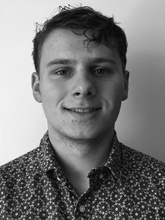
Maksym Mahlay is a freshman year pursuing a double major in piano performance and composition. A recent graduate of the Cleveland Institute of Music Preparatory Department, Maksym has participated in piano and composition competitions, most recently winning 2nd place at the annual “Carl E. Baldassarre Composer/Performer Competition.” Maksym has also served on junior juries and masterclasses, most recently serving at the Cleveland International Piano Competition, where he performed for internationally acclaimed pianist, Andrea Bonnata. Maksym currently studies piano with Michael Chertock, Professor of Piano and Chair of Keyboard Studies at CCM.
Russell Kern, soprano saxophone
Connor Mikula, alto saxophone
Jonathan Hostottle, tenor saxophone
Jeffrey Leung, baritone saxophone
"Batter my heart, three-person'd God, for you
As yet but knock, breathe, shine, and seek to mend;
That I may rise and stand, o'erthrow me, and bend
Your force to break, blow, burn, and make me new..." John Dunne (1572-1631)
breathe…blow…break places the audience immediately in a breathy and dreamy world, and at the same time introduces the economized set of materials that are the basis of the entire piece. Out of harmonic ambiguity emerge lines of poignant yet restrained lyricism shared between all members of the quartet. Gradually, the textures and harmonies develop increasing tension as the germinal materials are sequenced repeatedly in a non-tonal and original procedure developed by the composer. Gentle breath sounds become harsh and noisy as the motivic material is energized in a fast and agitated middle section. After reaching a dramatic climax, the slow opening texture returns, but transformed harmonically. Throughout the piece, the musical ideas always react to each other and develop organically, yet ultimately yearn to be made new. At the conclusion, the voices of the quartet ultimately break in resignation.
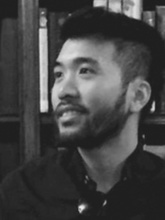
Baldwin Giang’s music aims to empower communities of audiences and performers by creating concert experiences that are opportunities for collective wonder and judgment. His music has been performed by such celebrated performers as the Arditti Quartet, JACK quartet, the Argento Ensemble, the Yale Symphony Orchestra, the Opera Theatre of Yale College, and the [Switch~ Ensemble] at venues across the US and Europe. Baldwin (b.1992) is a recent graduate of Yale University, earning a B.A. with Honors in Music and Political Science. Baldwin is currently a Regent's Fellow at the University of Michigan, Ann Arbor, pursuing a Master's in Music Composition.
2. Sleepy Rehearsal
3. Dawn
4. Bloomington Bus Driver
Anne Daley, flute
Wun Wai Ki, clarinet
Qianyi Fan, Qianyi Fan
Stephen Karukas, percussion
Nicholas Landrum, conductor
Music Diary is a composition meant for entertainment. Instead of using words, I attempt to capture interesting moments from my daily life through music. The idea of the first movement comes from girls’ talk. Not only does the soprano giggle and laugh, but other instruments imitate the sound of girls coming together to gossip. The second movement is called “Sleepy Rehearsal.” In my school, the choir rehearsals are usually in the afternoon, the sleepiest time for students. I paraphrased one of the “conductors’ favorite” warm-up exercise for choir, creating a relationship between the soprano and other instruments when the choir sings back what the piano plays. By getting more and more sleepy, the soprano finally cannot follow and falls asleep. The third movement is an intermezzo, which is about dreaming in the dawn. The fourth movement is about a Bloomington bus driver who always sings out the names of bus stops in funny tunes. “College mall”, “Hunter ridge”, and “Psychology” are all names of bus stops. In this movement, I used exactly his tunes for the names as I remembered.
